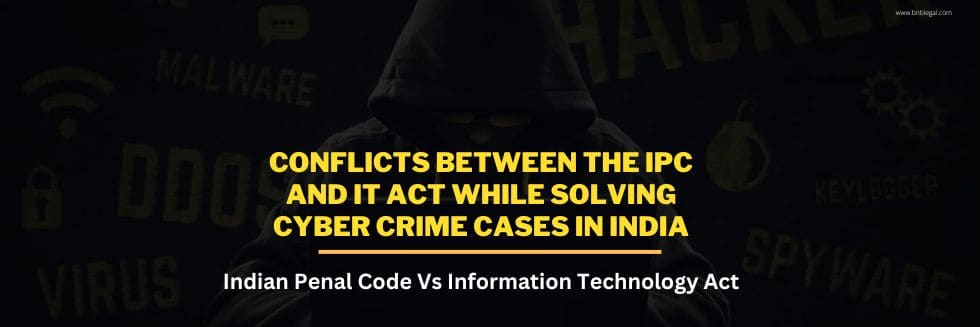Preface:
Online gaming is a multi-billion dollar opportunity for Indian startups and a key component of PM Narendra Modi’s ambition of a $1 trillion digital economy and India Techade, Thus, Young Indians across the nation are driving online gaming startups and new innovations. This article explains these new online gaming rules notified by the Ministry of Electronics and Information Technology on 6th April 2023 by bringing amendments in The Information Technology (Intermediary Guidelines and Digital Media Ethics Code) Rules, 2021 in April 2023, exercising power under Section 87(1), Section 87(2)(z) and Section 87(2) (zg) of the Information Technology Act. In accordance with the Government of India (Allocation of Business Rules), 1961, the issue pertaining to online gambling regulations was assigned to the Ministry of Electronics and IT (MeitY) on December 23 of last year. The Ministry created the proposed IT rule revisions within a fortnight, and on January 2, 2023, it posted them for comments and consultations. These new guidelines will give businesses clarity and stability in terms of the legal framework and surrounding in the industry.
Introduction
With the rise in the number of Indians playing online games, it has become necessary to verify that these games are provided in accordance with Indian legal regulations and that players are protected from any sort of danger. Additionally, the Government of India has assigned problems relating to online gaming to the Ministry of Electronics and Information Technology in order to permit consideration of those issues in their entirety. The gaming rules will apply to all the online gaming companies and online gaming intermediaries that host, publish or advertise the gaming rules in India, and in case of failure, the OGI would lose the ‘safe harbour’ immunity provided under Section 79 of the Information Technology Act, 2000, and would additionally be subject to penal provisions. The rules are announced to protect online gamers from any financial loss from the games that deal with real money deposits and winnings and to control the internet/ online gambling market.
SRB (Self-Regulatory Bodies’) Verification:
Online gaming platforms can also only host real money games verified by a self-regulatory body and cannot host any game (real money or not) that causes “harm.” Only those Money games can be hosted by OGI that have been verified as a ‘permissible online game’ by the self-regulatory body (“SRB”), and while hosting such games, the SRB’s verification mark would have to be displayed. Only ‘members’ of SRB may apply to SRB for obtaining such verification. The members of SRB should be representatives from the gaming industry who have been offering/promoting online games in a responsible manner.
As the Rules do not specify any further requirements for membership in SRB, it remains to be seen if foreign gaming companies that provide money games to Indian customers will be permitted to join. Based on the applicant’s information, the SRB may initially give verification for a period of three months. However, during this time, the SRB must finish its investigation to determine whether the applicant satisfies the requirements or not
Absolute And Explicit Restriction On Wagering And Gambling And Their Advertisements:
The guidelines have made it quite clear that an online game means a game that is offered on the internet and is of the nature that must be in confirmation with the law relating to gambling or betting or the age at which the individual is competent to enter a contract. The rules add the provision explicitly stating that the games must not violate any law in force at the time being in the country. A gaming company can not advertise the game in a way that it incentivises the people to enter the game finding it to be of a gambling nature. Thus, the rules cover the advertisements also in its ambit.
Extensive Due-Diligence Obligation On OGI (Online Gaming Intermediaries):
The rules expect the intermediaries to observe various due diligence while performing their duties. The intermediaries’ rules, regulations, privacy policies and terms shall inform the user and keep them informed about the manner of determination of the prize money, the fees, or any other charges that the user would have to pay for each of the online games. The user should be informed of the risk of financial loss if any explicitly. This must be ensured even if there is any advertisement being done for the same. The online gaming intermediary shall appoint a chief compliance officer, the same as done during the social media regulations, who would be key managerial personnel of the online gaming intermediary, who shall then appoint a nodal contact person for 24*7 coordination with the motive of ensuring the compliance of these provisions and other laws of the country too.
KYC Attachments Of The Users: Prior Requirement
On the compliance standards that must be followed upon receiving “deposit,” the Rules remain silent. Any remaining funds may be credited to the game provider’s account as a charge or fee, divided to other winning users, or permitted to be spent by the user to play additional games, depending on the game model. The applicability of several legislations controlling “deposits,” such as the Companies Act, 2013, the Payment & Settlement Systems Act, 2007 etc., would have to be evaluated for each individual model in the lack of clear guidelines. Therefore, the government ought to think about providing pertinent clarification in this situation. For the grievance procedure and the contact information of the person, a user can complain to must be made available on the SRB’s website or mobile application. Within 24 hours, the complaint must be acknowledged, and within 15 days, it must be resolved.
Analysis and Conclusion:
The two prolonged intentions behind formulating these regulations were first to regulate and disallow betting and gambling platforms to function and secondly to secure the user’s rights in the games that provide real money prizes apart from the wagering and gambling elements. Then, the govt has given various guidelines to be followed by the companies themselves acting as self-regulatory bodies. Despite there being a proper draft of the rules, several questions still remain to be answered. The companies have mentioned various concerns over the excessive involvement of government authorities in the games where real money is involved. The breach of privacy and complexity in user participation by asking for the completion of various prior requirements would be against the spirit of free trade.
As the online gaming landscape continues to evolve, the public will be crucial to fine-tune and adapt these regulations. Ultimately, the objective is to create a secure and transparent environment for online gamers while promoting the growth of the digital gaming sector in alignment with India’s ambitious digital economy goals.
This article is written and submitted by Renu during her course of internship at B&B Associates LLP. Renu is a BA.LLB 3th Year student at Rajiv Gandhi National University of Law, Patiala.









